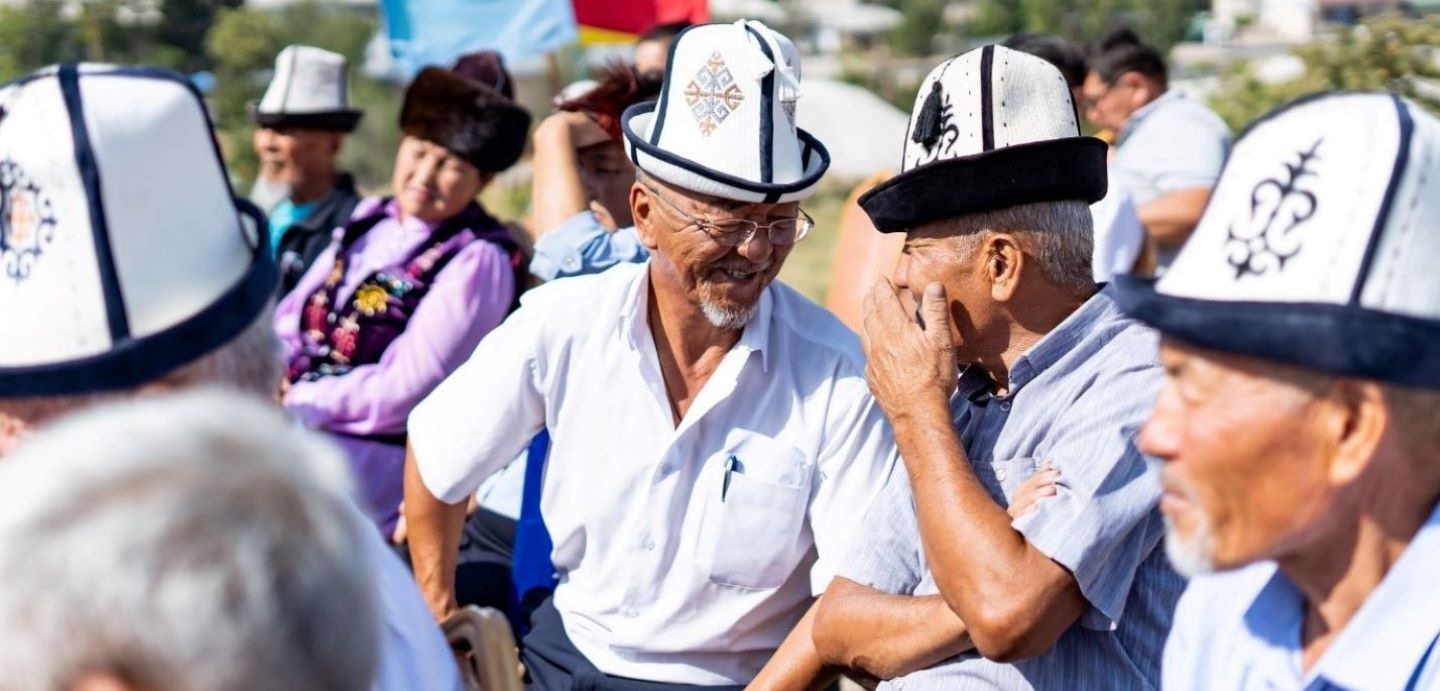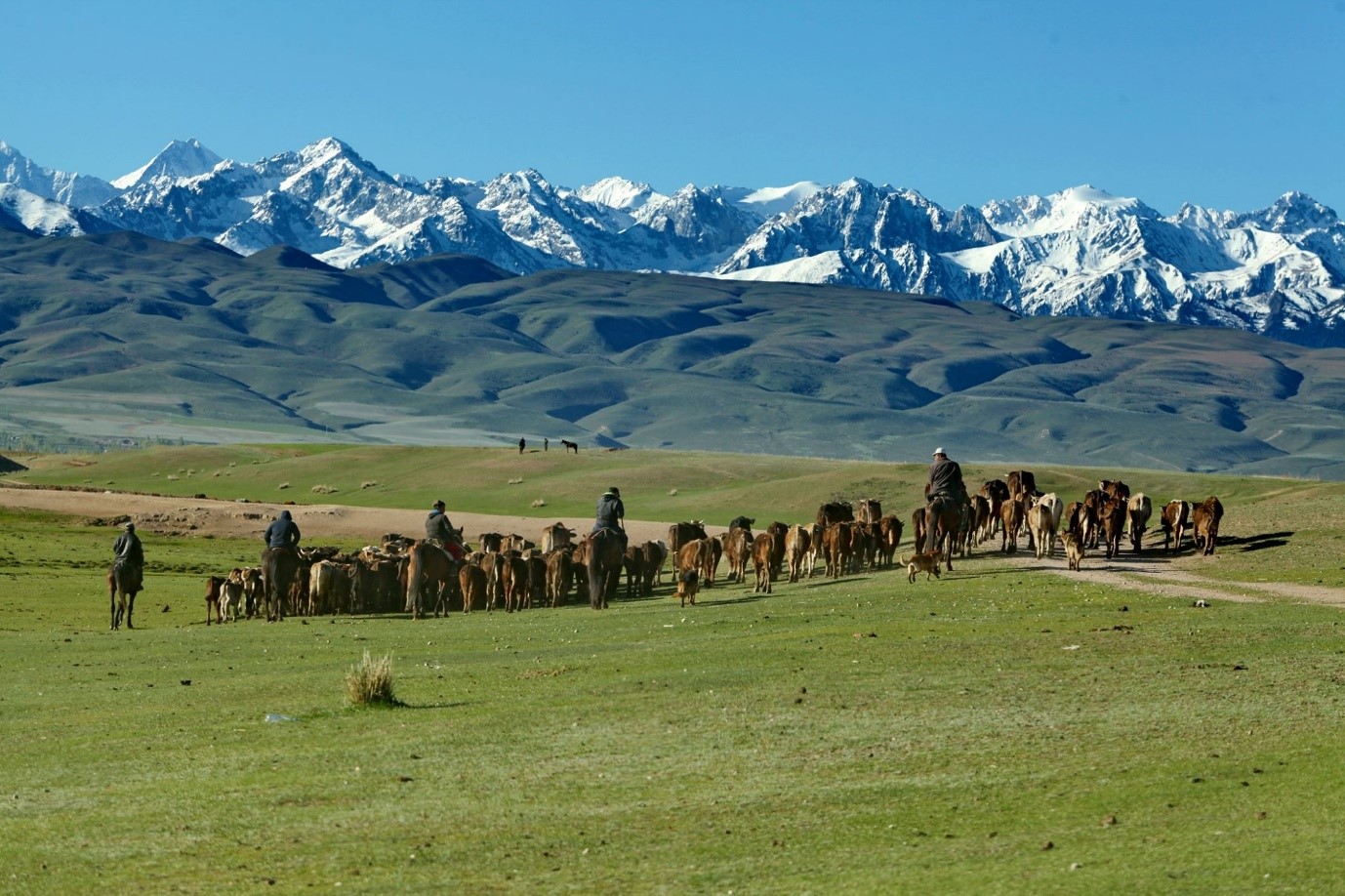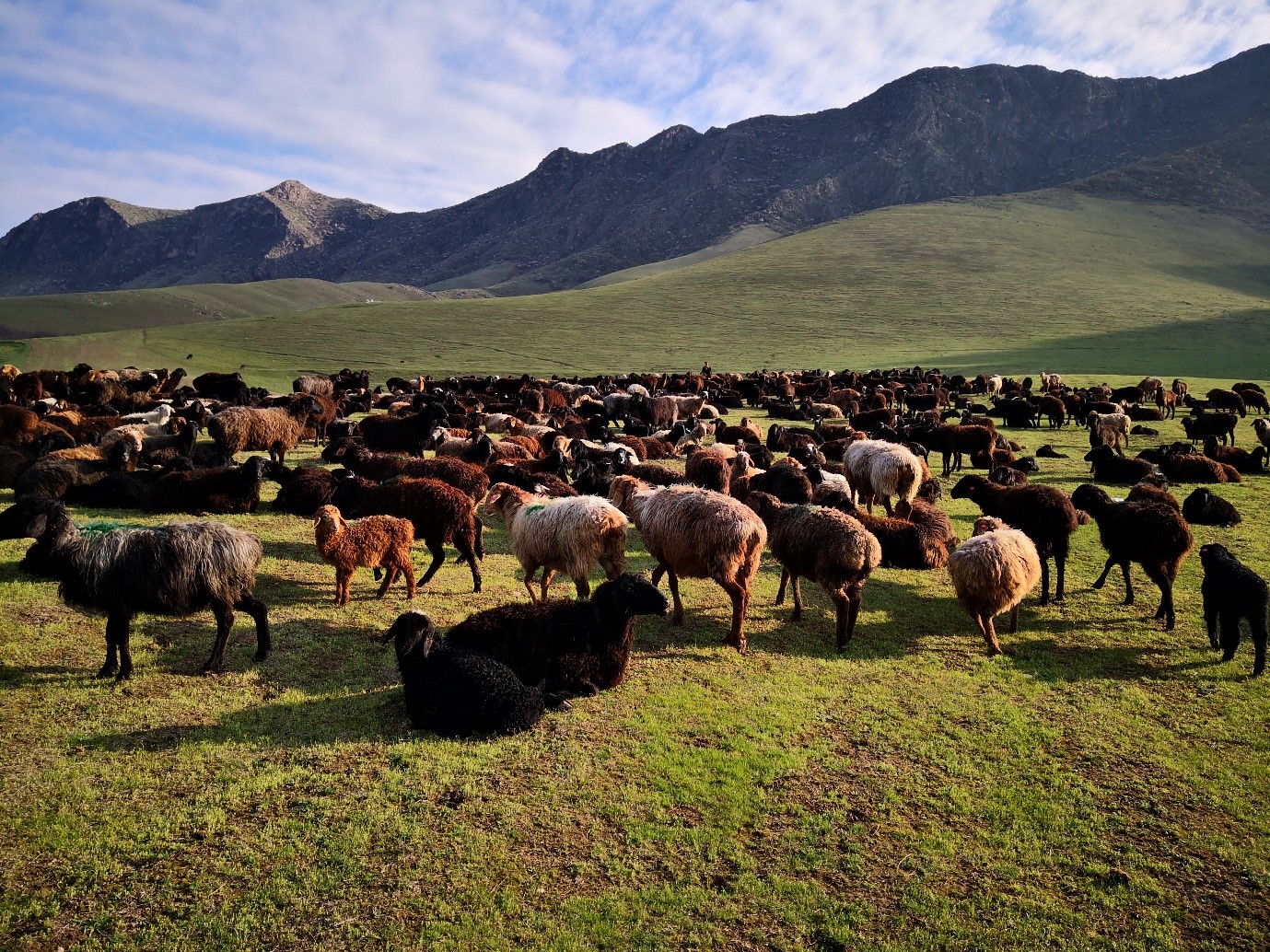Georgia and Kyrgyzstan: sustained efforts toward collective community pasture management
IFAD Asset Request Portlet
Asset Publisher
Georgia and Kyrgyzstan: sustained efforts toward collective community pasture management
Estimated reading time: 2 minutes
In 1991, a new era dawned with the dissolution of the Soviet Union. Social upheaval, cultural transformation and drastic economic change spread across its former republics. As they transitioned to a new reality, the newly-independent nations looked towards making land use more equitable, productive and sustainable.
In Georgia and Kyrgyzstan, modifying decades-old laws, regulations, customs and ownership was no easy feat, with political, social and economic hurdles.
Although a long process, in 2009, Kyrgyzstan eventually passed laws and created systems with IFAD's support that ensure fairer and more sustainable use of land. While the process is still ongoing in Georgia, policymakers from both countries are coming together to learn from Kyrgyzstan’s experience.
Kyrgyzstan’s new Pasture Law
Supported by IFAD’s Livestock and Market Development Programme (LMDP), Kyrgyzstan’s new Pasture Law regulates pastures by returning the land to the state and rural communities the right to use and manage.
Since the law was passed, rural communities have begun regulating pastures through community pasture management plans (CPMP), with maps that delineate borders, and specify how many animals can sustainably graze on the land. Using this information, pastoral communities develop strategies and action plans for pasture management and animal health and protection, making planning processes more socially just and environmentally sustainable.

To facilitate the adoption of the CPMPs at a local level, IFAD supported the establishment and training of pasture user unions, community organizations with elected executive bodies that are legally authorized to independently govern pastures. IFAD also prepared a tool to help policymakers across the region understand how to implement and use CPMPs effectively.
Today, Kyrgyzstan’s livestock sector, which had begun to decline after the country’s independence, is improving, with increasing community ownership and accountability.
The Georgian landscape
In Georgia, where more than 70 per cent of pastures are estimated to be in state hands, land reform has followed a different route.
The country offers a range of incentives for pastoralists. A programme in the highlands gives cattle breeders the use of pastures for up to 25 years. Cooperative farms receive assistance, including farm equipment. Moreover, farmers are eligible to access highly-subsidized credit from financial institutions, and people in highland areas are exempt from income and property taxes.
Despite these incentives, climate and landscape conditions, combined with unsustainable farming practices such as overgrazing, have left 30 per cent of the country’s agricultural land degraded.
Additionally, Georgia lacks a single land management body to lead on implementing land reform. With responsibilities divided between different ministries, issues like land records and resources are more complicated to resolve and land reform harder to achieve.
Sharing knowledge

Through IFAD’s South-South and Triangular Cooperation (SSTC) – which supports and promotes collaboration and knowledge sharing among developing countries – Kyrgyzstan delegates have shared their successful experience of land reform with their Georgian counterparts, including the benefits of using CPMPs, consolidated legal instruments, a designated national authority, and working with communities.
Officials from Georgia are expected to visit Kyrgyzstan in 2023 to observe the achievements and get a tangible sense of how sustainable land management could improve the situation in Georgia.
Publication date: 01 February 2023